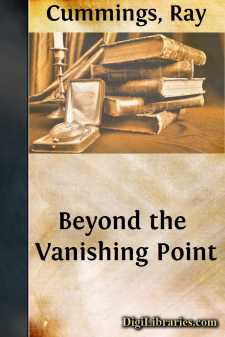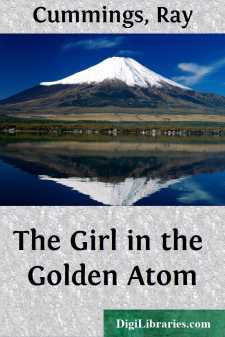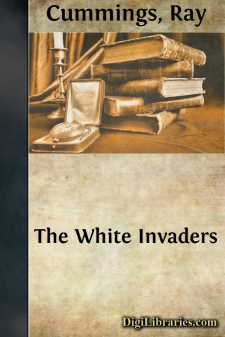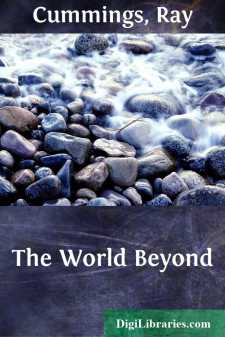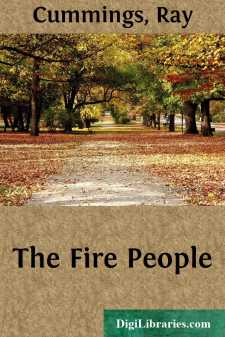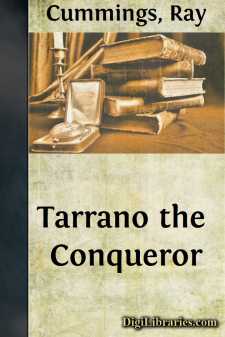Categories
- Antiques & Collectibles 13
- Architecture 36
- Art 48
- Bibles 22
- Biography & Autobiography 813
- Body, Mind & Spirit 142
- Business & Economics 28
- Children's Books 15
- Children's Fiction 12
- Computers 4
- Cooking 94
- Crafts & Hobbies 4
- Drama 346
- Education 46
- Family & Relationships 57
- Fiction 11828
- Games 19
- Gardening 17
- Health & Fitness 34
- History 1377
- House & Home 1
- Humor 147
- Juvenile Fiction 1873
- Juvenile Nonfiction 202
- Language Arts & Disciplines 88
- Law 16
- Literary Collections 686
- Literary Criticism 179
- Mathematics 13
- Medical 41
- Music 40
- Nature 179
- Non-Classifiable 1768
- Performing Arts 7
- Periodicals 1453
- Philosophy 64
- Photography 2
- Poetry 896
- Political Science 203
- Psychology 42
- Reference 154
- Religion 513
- Science 126
- Self-Help 84
- Social Science 81
- Sports & Recreation 34
- Study Aids 3
- Technology & Engineering 59
- Transportation 23
- Travel 463
- True Crime 29
Beyond the Vanishing Point
by: Ray Cummings
Categories:
Description:
Excerpt
CHAPTER I
It was shortly after noon of December 31, 1970, when the series of weird and startling events began which took me into the tiny world of an atom of gold, beyond the vanishing point, beyond the range of even the highest-powered electric-microscope. My name is George Randolph. I was, that momentous afternoon, assistant chemist for the Ajax International Dye Company, with main offices in New York City.
It was twelve-twenty when the local exchange call-sorter announced Alan's connection from Quebec.
"Hello, George? Look here, you've got to come up here at once. Chateau Frontenac, Quebec. Will you come?"
I could see his face imaged in the little mirror on my desk; the anxiety, tenseness in his voice, was duplicated in his expression.
"Well—" I began.
"You must, George. Babs and I need you. See here...."
He tried at first to make it sound like an invitation for a New Year's Eve holiday. But I knew it was not that. Alan and Barbara were my best friends. They were twins, eighteen years old. I felt that Alan would always be my best friend; but for Babs, my hopes, longings, went far deeper, though as yet I had never brought myself to the point of telling her so.
"I'd like to come, Alan. But—"
"You've got to George! I can't tell you everything over the public air. But I've seen him: He's diabolical. I know it now!"
Him! It could only mean, of all the world, one person!
"He's here!" he went on. "Near here. We saw him today! I didn't want to tell you, but that's why we came. It seemed a long chance, but it's he, I'm positive!"
I was staring at the image of Alan's eyes; there was horror in them. And his voice too. "God, George, it's weird! Weird, I tell you. His looks—he—oh I can't tell you now! Only, come!"
I was busy at the office in spite of the holiday season, but I dropped everything and went. By one o'clock that afternoon I was wheeling my little sport Midge from its cage on the roof of the Metropole building, and went into the air.
It was a cold gray afternoon with the feel of coming snow. I made a good two hundred and fifty miles at first, taking the northbound through-traffic lane which today the meteorological conditions had placed at an altitude of 6,200 feet.
Flying is largely automatic. There was not enough traffic to bother me. The details of leaving the office so hastily had been too engrossing for thought of Alan and Babs. But now, in my little pit at the controls, my mind flung ahead. They had located him. That meant Franz Polter, for whom we had been searching nearly four years. And my memory went back into the past with vivid vision....
The Kents, four years ago, were living on Long Island. Alan and Babs were fourteen at the time, and I was seventeen. Even then Babs was something kind of special to me. I lived in a neighboring house that summer and saw them every day.
To my adolescent mind a thrilling mystery hung upon the Kent family. The mother was dead. Dr. Kent, father of Alan and Babs, maintained a luxurious home, with only a housekeeper and no other servant. Dr. Kent was a retired chemist. He had, in his home, a laboratory in which he was working upon some mysterious problem. His children did not know what it was, nor, of course, did I. And none of us had ever been in the laboratory, except that when occasion offered we stole surreptitious peeps.
I recall Dr. Kent as a kindly, iron-gray haired gentleman. He was stern with the discipline of his children; but he loved them, and was indulgent in many ways. They loved him; and I, an orphan, began looking upon him almost as a father. I was interested in chemistry. He knew it, and did his best to help and encourage me in my studies.
There came an afternoon in the summer of 1966, when arriving at the Kent home, I ran upon a startling scene. The only other member of the household was a young fellow of twenty-five, named Franz Polter. He was a foreigner, born, I understood, in one of the Balkan Protectorates; he was here, employed by Dr. Kent as laboratory assistant.
He had been with the Kents, at this time, two years. Alan and Babs didn't like him, nor did I. He must have been a clever, skillful chemist. No doubt he was. But he was, to us, repulsive. A hunchback, with a short, thick body; dangling arms that suggested a gorilla; barrel chest; a lump set askew on his left shoulder, and his massive head planted down with almost no neck....


